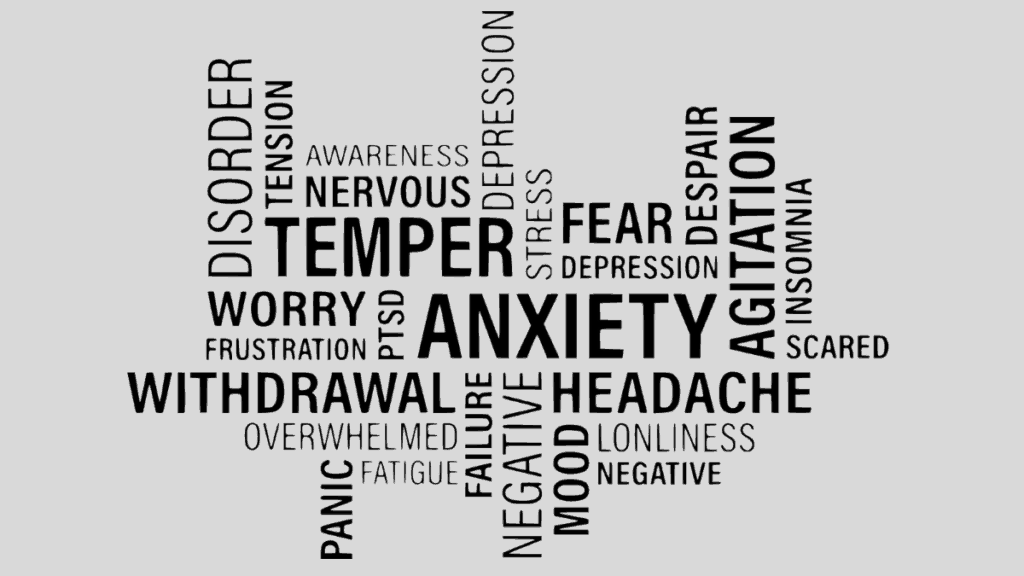The EPDS Paradox Evaluating Its Role In Perinatal Mental Health Screening
These recommendations created a contrast with the guidance provided by experts in different regions, including British Columbia, Ontario, Australia, the United States, England, and Scotland. Understanding the reasons behind these varying recommendations is crucial for addressing perinatal mental health effectively.

Perinatal Mental Health Sign & symptoms
Prenatal mental health refers to a person’s emotional and psychological well-being during pregnancy. It’s essential to recognize the signs and symptoms of prenatal mental health issues, as they can impact both the pregnant person and the developing fetus. Here are some common signs and symptoms:
- Persistent Sadness or Mood Swings: Frequent feelings of sadness, irritability, or mood swings that interfere with daily life can be a sign of prenatal depression.
- Anxiety and Worry: Excessive worry, anxiety, or feelings of panic about the pregnancy, childbirth, or becoming a parent.
- Fatigue: Feeling extremely tired and lacking energy, even after a full night’s sleep.
- Changes in Sleep Patterns: Insomnia, difficulty falling asleep, or sleeping too much are common signs of prenatal mental health issues.
- Appetite Changes: Significant changes in appetite, leading to excessive weight gain or loss.
- Loss of Interest: Losing interest in activities or hobbies that were once enjoyable.
RELATED ARTICLE Signs and symptoms of perinatal mental health issues
- Difficulty Concentrating: Trouble focusing, making decisions, or remembering things.
- Feelings of Guilt or Worthlessness: Excessive guilt or feelings of worthlessness, often for reasons that may not be justified.
- Isolation and Withdrawal: Withdrawing from social activities and isolating oneself from friends and family.
- Irrational Fears: Developing irrational fears about the pregnancy or the baby’s health.

- Physical Symptoms: Experiencing physical symptoms like headaches, stomachaches, or aches and pains with no clear medical cause.
- Recurrent Intrusive Thoughts: Disturbing or intrusive thoughts about harm coming to the baby or oneself.
- Difficulty Bonding with the Baby: Struggling to connect with the developing fetus or a lack of interest in the pregnancy.
- Increased Sensitivity to Stress: Becoming more sensitive to everyday stressors and finding it challenging to cope with them.
- Changes in Self-Care: Neglecting self-care, such as proper nutrition, exercise, or prenatal medical appointments.

It’s important to note that experiencing some of these symptoms is common during pregnancy due to hormonal changes and the physical and emotional challenges of carrying a child. However, if these symptoms persist, become overwhelming, or significantly interfere with daily life, it’s crucial to seek help.
Prenatal mental health issues, if left untreated, can lead to complications during pregnancy, affect the baby’s development, and increase the risk of postpartum depression. Seeking support from healthcare professionals, therapists, or support groups can be essential for addressing prenatal mental health concerns and ensuring a healthy pregnancy.
Depression is a widespread issue during pregnancy and the postpartum period, impacting approximately 10-15% of women and 8-12% of men. Unfortunately, there is a significant gap in research when it comes to understanding depression during pregnancy and the postpartum period among birth fathers or non-binary and gender diverse individuals. Rates of perinatal depression are even higher among marginalized groups, affecting almost half of immigrant women and Indigenous women. Regrettably, suicide emerges as a leading cause of maternal death in Canada, emphasizing the urgency of addressing perinatal mental health.
The good news is that depression is a treatable condition. Early intervention and treatment during pregnancy or the postpartum period can benefit not only the affected parent but also their entire family, preventing long-term negative outcomes for children and families. However, recognizing depression during this period can be challenging because many symptoms, such as changes in sleep, eating habits, concentration, and physical changes, can be easily mistaken for normal aspects of pregnancy and childbirth. This is where the Edinburgh Postnatal Depression Scale (EPDS) comes into play.

EPDS Overview
The EPDS is a tool specifically developed to disentangle the experience of pregnancy and postpartum from symptoms of depression. It is recognized as reliable and valid, becoming the gold standard for depression screening during pregnancy and postpartum. In Canada, it is already part of the prenatal and postpartum medical records in more than two-thirds of our provinces and territories.
However, the Canadian Task Force on Preventive Health Care recommendation against using the EPDS is based on a systematic review with strict inclusion criteria, resulting in only one eligible randomized controlled trial (RCT). This sole RCT found that participants screened with the EPDS had improved maternal mental health outcomes at six months postpartum. Despite this, the task force concluded that the evidence supporting the EPDS was “very uncertain” due to concerns about bias and a lack of multiple trials.
The criticism that the EPDS is self-reported overlooks its acceptance and endorsement by the clinical and academic community as the gold standard for perinatal depression screening. Concerns about “selective outcome reporting” are questionable, as both the EPDS and the General Health Questionnaire (GHQ) outcomes were reported in the RCT. Furthermore, input from experts who advocated for considering non-RCT evidence was dismissed.
The task force did consider non-RCT evidence in its claim that instrument-based perinatal depression screening could lead to false positives and overdiagnosis, potentially straining Canada’s health-care system. To address the risk of false positives, the task force could recommend the adoption of a higher cut-off score on the EPDS.

While the healthcare system is certainly strained, a more common cut-off score used in clinical practice of 13 or higher has a specificity of 95%, which results in a lower number of false positives. This adjustment can alleviate the concern regarding constrained resources in our healthcare system.
READ MORE ARTICLES Japanese Flavors for a Sharper Mind: Wasabi, A Memory Enhancer
Furthermore, in the same guideline, the task force recommends that when caring for individuals during the pregnant and postpartum period, clinicians should continue to ask about mood and symptoms of depression, maintaining a high degree of vigilance for these signs. Why not use the EPDS, a tool developed for this purpose, to support this conversation? The EPDS is quick (10 questions) and easy to administer, which won’t take longer than a conversation about mental health with a patient. Moreover, it can serve as a reminder and provide structure for a clinician to perform the screening effectively.
Additionally, the EPDS can play a crucial role in mitigating inequities in health screening for racialized patients. Research has shown that when perinatal depression screening is left to the discretion of the healthcare provider, racialized patients are less likely to get screened. The task force acknowledged the potential for a negative impact on marginalized groups but did not provide a rationale for giving other concerns more weight than this one.

It’s worth noting that the task force recommendation is conditional, and this implies that further research has a greater chance of changing the task force’s stance. In the GRADE system used by the task force, when “the margin between desirable and undesirable consequences is small, the balance depends on patient values and preferences.” Given that the task force reached the conclusion that the evidence in favor of the benefits of instrument-based screening was “very uncertain,” and that there was limited evidence of harms, shouldn’t the task force have given greater weight to its patient preferences study?
Study Result
This study concluded that The majority of participants indicated a strong desire to be screened for depression during pregnancy or the postpartum period, even considering that the likelihood of many of the outcomes are not well known.” Further, patients in the study felt that “treatment decisions are separate from screening decisions, and any impacts from false positives or over diagnosis would be resolved quickly.
In summary, the recommendations from the Canadian Task Force on Preventive Health Care have stirred a significant debate within the healthcare community. While the concerns about false positives and resource constraints are valid, using the EPDS with appropriate adjustments and considering patient preferences can provide an effective tool for perinatal depression screening. The focus should be on preventing perinatal suicides and promoting mental health for Canadian families, making the best use of available tools to achieve these crucial goals.
1 Comment